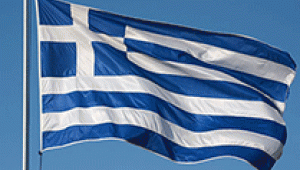Baudilio Tomé Muguruza, the member of the ECA responsible for the report, said that while a taskforce set up by the EU to deliver the technical assistance proved a good mechanism, there were weaknesses in the design of some projects and “only mixed results in terms of influence on the progress of reform”.
The ECA noted that, while the assistance was often not very influential, this needed to be seen in the context of the volatile situation in Greece at the time.
However, the urgency of the circumstances also meant the taskforce was set up very rapidly and began work as an “incomplete entity”, lacking a dedicated budget or a single comprehensive strategy for delivering assistance or deciding priorities.
The auditors also found weaknesses at project level. The selection of service providers was not always based on thorough analysis of all options and some long-term assistance contracts were flawed and did not clearly outline what they were expected to deliver.
The monitoring of progress “could be improved” also, the ECA said. The breadth of checks carried out on the work of external providers was “highly variable” and the taskforce did not systematically monitor its own impact or whether the Greek authorities followed up on its recommendations.
Overall, this meant uneven progress in supporting the implementation of reforms and insufficient impact in some areas.
For example, while the ECA said progress on structural spending was good, influence on public administration and taxation reform – a key focus of the taskforce – was only “partially effective”.
The auditors’ recommendations included streamlining the number of technical assistance partners to improve coherence, ensuring the implementation of assistance is systematically monitored, and creating a pool of external experts who could be deployed on an ad hoc basis to projects in member states.
The taskforce was launched to coordinate technical assistance in Greece after the country appealed for help from the international community in the face of severe financial crisis in the spring of 2010.
Eurozne member states and the International Monetary Fund provided financial assistance which to date totals €245.7bn, accompanied by a programme of reforms agreed by the troika of the European Commission, the European Central Bank and the IMF.
Since then, Greece has required successive bailouts and struggled to implement the harsh austerity measures laid out in the agreement, to which many citizens and politicians alike are opposed.
Six years on, Greece remains in turmoil. Strikes and protests are frequent, with citizens most recently taking to the streets to object to changes to the country’s pension system.













